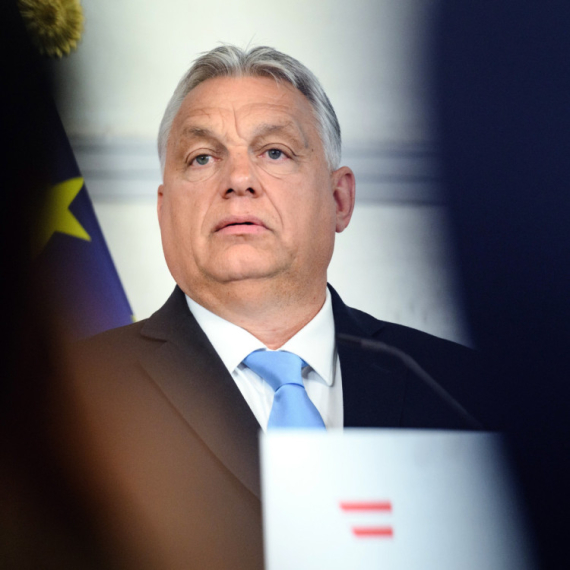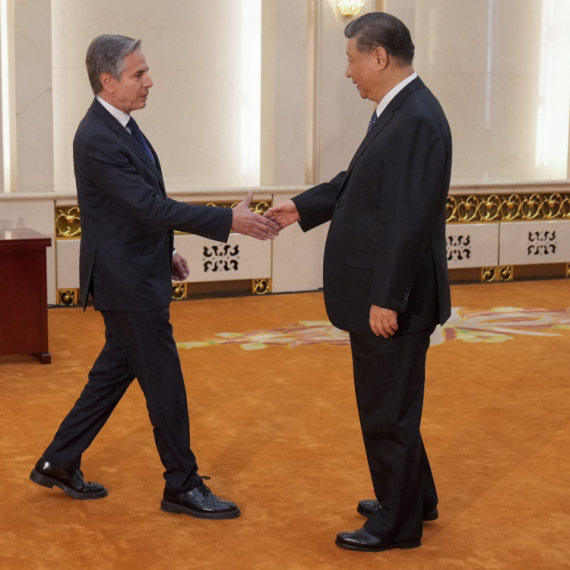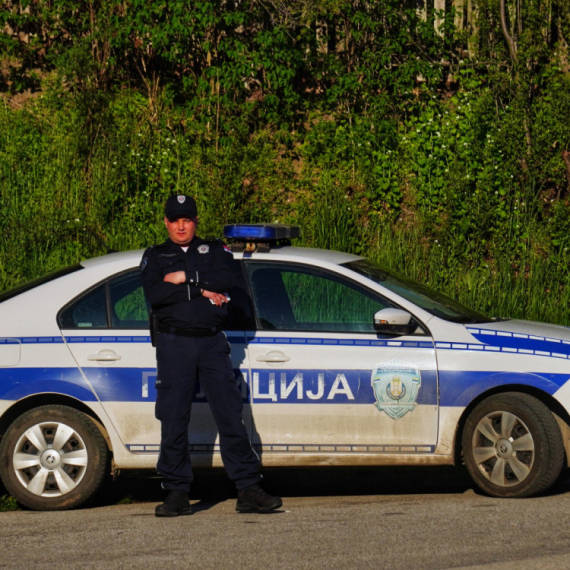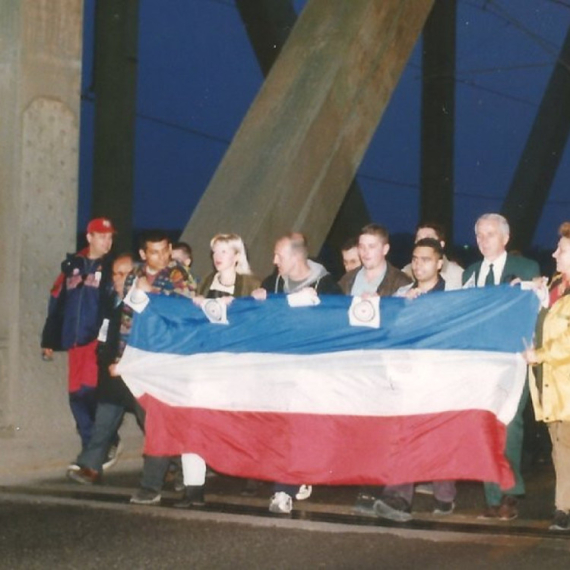Russia: ICJ's Kosovo opinion
Wednesday, 21.07.2010.
10:49

Russia: ICJ's Kosovo opinion At 3 p.m. local time July 22 in The Hague, the U.N. International Court of Justice (ICJ) will present its advisory opinion on the legality of Kosovo’s February 2008 unilateral declaration of independence (UDI) from Serbia. The opinion will not be legally binding — it is an advisory opinion requested by the U.N. General Assembly at the behest of Belgrade — but will in essence determine whether, according to international law, Kosovo’s declaration of independence was legal. Regardless of the ICJ opinion, the circumstances surrounding Kosovo’s UDI remain unchanged. Kosovo is still a de facto Western protectorate with explicit security guarantees from NATO, and Serbia has neither the military capacity to change the status quo nor the desire to try to do so, in light of its efforts to become an EU member state. Russia, Serbia’s main ally on the Kosovo matter, has stated that it hopes the ICJ ruling will force new talks between Serbs and Kosovars. Vitaly Churkin, Russia’s ambassador to the United Nations, said July 15 that Russia continues to oppose Kosovo’s independence and supports Belgrade’s position that Kosovo is a sovereign part of Serbia. But Moscow stands to benefit no matter the outcome of the ICJ deliberations. The Hague seat of the ICJ (Tanjug) The intertwined crisis of Kosovo and Georgia Kosovo’s UDI came 9 years after NATO’s 1999 war against what was then known as Yugoslavia forced Belgrade to relinquish its physical control over the province. The stated reasons for NATO’s military campaign in 1999 were atrocities committed by Yugoslav military and paramilitary forces against the Albanian population of Kosovo. Serbia had waged a number of military conflicts throughout the 1990s, the purpose of which were to expand Belgrade’s influence in the Balkans. Thus, the West wanted to eliminate Serbia — and its leader, Slobodan Milosevic — as a regional threat and rival. But the underlying geopolitical context was also NATO’s evolution from a regional security grouping with no mandate to act outside of its membership’s immediate defense to an organization with a mandate to keep order in Europe, and, eventually, beyond. NATO took action in Kosovo without U.N. Security Council (UNSC) approval and despite strong Russian and Chinese opposition. The precedent was set for the U.S. and its allies to act without addressing the interests of other fellow UNSC permanent members (as the U.S. would later repeat in the run-up to the 2003 Iraq invasion). For Russia, NATO’s actions in Kosovo were untenable. Since Russia is not part of NATO — in fact, the alliance had been created to defend Europe against Soviet invasion — Moscow realized that Kosovo established an extraordinary precedent. NATO determined that an intervention was necessary in a matter of European security, intervened militarily and then resolved the post-conflict environment according to its interests. It did so against a stated Moscow ally, with dubious evidence and reasoning. The West did not stop there either; Kosovo was followed by NATO expansion into the former Soviet sphere in Eastern Europe and the defeat of a pro-Kremlin Ukrainian government. In this context, the 2008 Kosovo UDI was just another in a line of decisions on European security taken by the West in which Moscow’s protests were ignored. Russia, therefore, formulated a response to the West. On Feb. 15, 2008 — two days before the Kosovo UDI — Russian Foreign Minister Sergei Lavrov met with the presidents of Georgian breakaway republics South Ossetia and Abkhazia. After the meeting, the Russian foreign ministry released a statement stating, “The declaration of sovereignty by Kosovo and its recognition will doubtlessly be taken into account in [Russia’s] relations with Abkhazia and South Ossetia.” The West did not heed the warning — doubting Russia’s resolve to respond — and Russia used a crisis in August 2008 in Georgia that allowed it to parallel the West’s actions against Serbia. It used supposed Georgian atrocities against South Ossetians as the reason for a military intervention that led to Moscow-supported independence for the two breakaway republics. Russia and the ICJ opinion Moscow now stands to benefit — at least rhetorically — no matter what opinion the ICJ supports. A ruling that the UDI was legal also legitimizes Russia’s support for the independence of South Ossetia and Abkhazia. While the West has made the legal argument that the Kosovo case is unique and sets no precedent, the non-Western opinion on the matter (with very few exceptions) is that it does. In theory, it also opens the possibility that more countries will recognize the two republics, as Moscow would have a case that Kosovo and the two Georgian territories are not different. However, Moscow does not need South Ossetia and Abkhazia to gain international recognition for its control of the two provinces to pay dividends. Moscow already controls the two provinces economically, politically and militarily and can use them to pressure Georgia — still a U.S. ally — if need be. Therefore, if the ICJ rules that the UDI was illegal, Moscow will not fret much about the legal implications. Instead, it will be able to show that its support for Belgrade has, from the beginning, been justified and that the West, led by the United States, broke international law by encouraging Kosovo to declare independence unilaterally and without recourse to the UNSC. Moscow will use the ICJ opinion in that case to show that it has been a supporter of international law and sanctity of sovereignty. Kosovo was a redline issue for Moscow in 2008 because it set a precedent that allowed the West to intervene militarily and redraw European borders without asking Russia for its opinion. Russia’s 2008 war against Georgia was the response Moscow used to counter the West’s perceived belligerence. The ICJ opinion — whichever way it goes — will be an added boon for Moscow. This report is republished with permission of STRATFOR The U.N. International Court of Justice is set to present its opinion on the legality of Kosovo’s unilateral declaration of independence from Serbia. STRATFOR "While Russia is publicly siding with the Serbs against Kosovo’s independence, Moscow stands to gain — at least rhetorically — no matter how the court rules."
Russia: ICJ's Kosovo opinion
At 3 p.m. local time July 22 in The Hague, the U.N. International Court of Justice (ICJ) will present its advisory opinion on the legality of Kosovo’s February 2008 unilateral declaration of independence (UDI) from Serbia.The opinion will not be legally binding — it is an advisory opinion requested by the U.N. General Assembly at the behest of Belgrade — but will in essence determine whether, according to international law, Kosovo’s declaration of independence was legal.
Regardless of the ICJ opinion, the circumstances surrounding Kosovo’s UDI remain unchanged. Kosovo is still a de facto Western protectorate with explicit security guarantees from NATO, and Serbia has neither the military capacity to change the status quo nor the desire to try to do so, in light of its efforts to become an EU member state.
Russia, Serbia’s main ally on the Kosovo matter, has stated that it hopes the ICJ ruling will force new talks between Serbs and Kosovars. Vitaly Churkin, Russia’s ambassador to the United Nations, said July 15 that Russia continues to oppose Kosovo’s independence and supports Belgrade’s position that Kosovo is a sovereign part of Serbia. But Moscow stands to benefit no matter the outcome of the ICJ deliberations.
The intertwined crisis of Kosovo and Georgia
Kosovo’s UDI came 9 years after NATO’s 1999 war against what was then known as Yugoslavia forced Belgrade to relinquish its physical control over the province. The stated reasons for NATO’s military campaign in 1999 were atrocities committed by Yugoslav military and paramilitary forces against the Albanian population of Kosovo.Serbia had waged a number of military conflicts throughout the 1990s, the purpose of which were to expand Belgrade’s influence in the Balkans. Thus, the West wanted to eliminate Serbia — and its leader, Slobodan Milošević — as a regional threat and rival.
But the underlying geopolitical context was also NATO’s evolution from a regional security grouping with no mandate to act outside of its membership’s immediate defense to an organization with a mandate to keep order in Europe, and, eventually, beyond. NATO took action in Kosovo without U.N. Security Council (UNSC) approval and despite strong Russian and Chinese opposition. The precedent was set for the U.S. and its allies to act without addressing the interests of other fellow UNSC permanent members (as the U.S. would later repeat in the run-up to the 2003 Iraq invasion).
For Russia, NATO’s actions in Kosovo were untenable. Since Russia is not part of NATO — in fact, the alliance had been created to defend Europe against Soviet invasion — Moscow realized that Kosovo established an extraordinary precedent. NATO determined that an intervention was necessary in a matter of European security, intervened militarily and then resolved the post-conflict environment according to its interests.
It did so against a stated Moscow ally, with dubious evidence and reasoning. The West did not stop there either; Kosovo was followed by NATO expansion into the former Soviet sphere in Eastern Europe and the defeat of a pro-Kremlin Ukrainian government.
In this context, the 2008 Kosovo UDI was just another in a line of decisions on European security taken by the West in which Moscow’s protests were ignored. Russia, therefore, formulated a response to the West.
On Feb. 15, 2008 — two days before the Kosovo UDI — Russian Foreign Minister Sergei Lavrov met with the presidents of Georgian breakaway republics South Ossetia and Abkhazia. After the meeting, the Russian foreign ministry released a statement stating, “The declaration of sovereignty by Kosovo and its recognition will doubtlessly be taken into account in [Russia’s] relations with Abkhazia and South Ossetia.”
The West did not heed the warning — doubting Russia’s resolve to respond — and Russia used a crisis in August 2008 in Georgia that allowed it to parallel the West’s actions against Serbia. It used supposed Georgian atrocities against South Ossetians as the reason for a military intervention that led to Moscow-supported independence for the two breakaway republics.
Russia and the ICJ opinion
Moscow now stands to benefit — at least rhetorically — no matter what opinion the ICJ supports. A ruling that the UDI was legal also legitimizes Russia’s support for the independence of South Ossetia and Abkhazia. While the West has made the legal argument that the Kosovo case is unique and sets no precedent, the non-Western opinion on the matter (with very few exceptions) is that it does. In theory, it also opens the possibility that more countries will recognize the two republics, as Moscow would have a case that Kosovo and the two Georgian territories are not different.However, Moscow does not need South Ossetia and Abkhazia to gain international recognition for its control of the two provinces to pay dividends. Moscow already controls the two provinces economically, politically and militarily and can use them to pressure Georgia — still a U.S. ally — if need be. Therefore, if the ICJ rules that the UDI was illegal, Moscow will not fret much about the legal implications.
Instead, it will be able to show that its support for Belgrade has, from the beginning, been justified and that the West, led by the United States, broke international law by encouraging Kosovo to declare independence unilaterally and without recourse to the UNSC. Moscow will use the ICJ opinion in that case to show that it has been a supporter of international law and sanctity of sovereignty.
Kosovo was a redline issue for Moscow in 2008 because it set a precedent that allowed the West to intervene militarily and redraw European borders without asking Russia for its opinion. Russia’s 2008 war against Georgia was the response Moscow used to counter the West’s perceived belligerence. The ICJ opinion — whichever way it goes — will be an added boon for Moscow.
This report is republished with permission of STRATFOR


























































Komentari 7
Pogledaj komentare